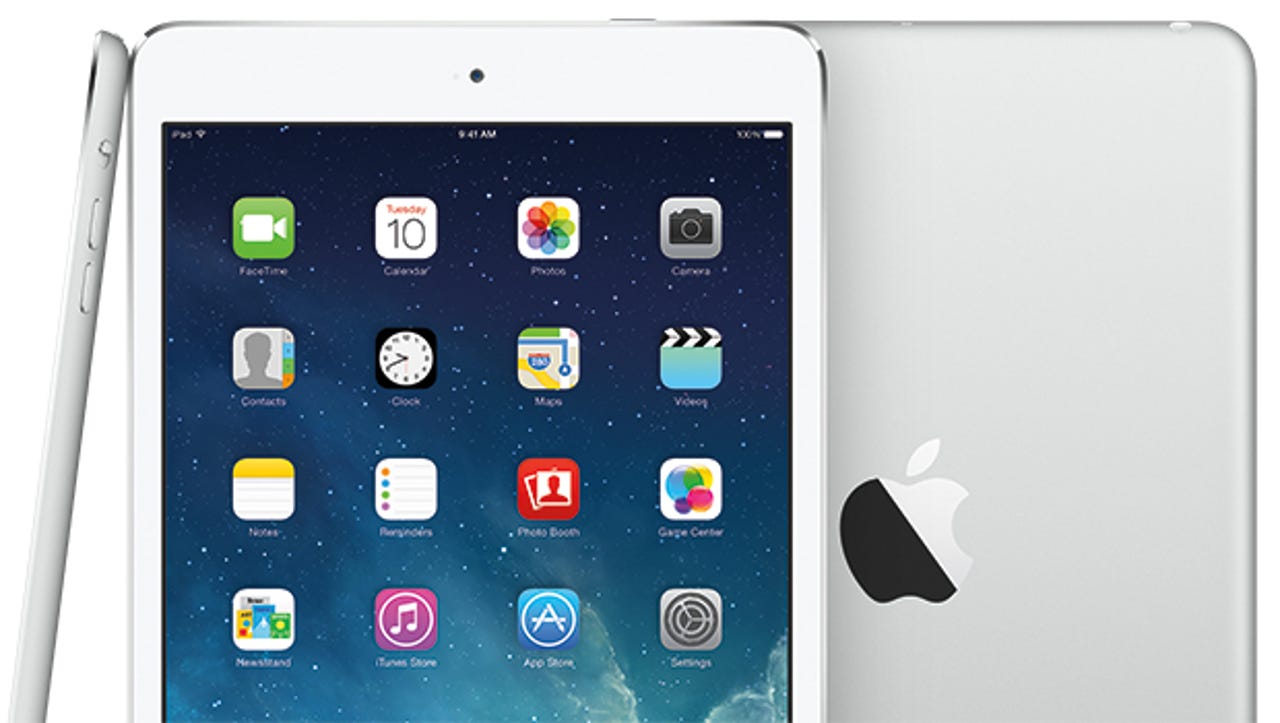For Apple's new iPad, it's (r)evolution, baby


Once a company develops a great product that enjoys a monopoly, the late Apple co-founder Steve Jobs said, it begins to concentrate less on innovation than protecting its turf.
"The Mac user interface was a 10-year monopoly," Jobs told Steven Levy in Newsweek in 2004. "Who ended up running the company? Sales guys. At the critical juncture in the late '80s, when they should have gone for market share, they went for profits. They made obscene profits for several years. And their products became mediocre. And then their monopoly ended with Windows 95. They behaved like a monopoly, and it came back to bite them, which always happens."
Latest news on iPad Air
Jobs, ever the instigator, couldn't help but add: "Look who's running Microsoft now," referring to chief executive Steve Ballmer. "A sales guy!"
We know how these sagas end, of course. In August, the outgoing Microsoft CEO promised to step down within a year, one "lost" decade after Jobs uttered those words. And the late Apple CEO stepped down from his post after his health took a turn for the worse in 2011, the very same year that his company's most popular product—the iPhone—peaked, in one sense of the word, enjoying 24 percent market share, per Gartner figures from the time.
A year later, the iPhone's market share dropped to 21 percent. Two years later, 14 percent. By then, even the people in the MacRumors forums were arguing whether the device had grown stale.
Nine days from today, Apple will reportedly refresh its iPad lineup. Both the full-size version and the mini model are said to receive a nip and tuck, from their dimensions (thinner, lighter) to their components (faster processors, sharper cameras). Both models will arrive with iOS 7, the reimagined operating system that helped Apple sell a record number of iPhones last month and shake off the "stale" charge.
When it was introduced in 2010, the iPad was widely considered the successor to the laptop and, with not nearly as much exaggeration as you would expect from such a statement, the future of computing. Though Apple has sold millions of them, that vision hasn't quite come true. The modern tablet may be the future of cash registers and clipboards, but it has not wholly displaced the laptop.
One thing is certain, however: peak iPad is already behind us. Though Gartner in 2011 had forecast Apple to enjoy tablet market domination through 2014, more recent estimates by IDC have the iPad succumbing to Android before this year's end, even as overall shipments escalate.
Few can accuse Apple of maximizing profits in the tablet segment, not with the introduction of the iPad mini, which chief financial officer Peter Oppenheimer acknowledged had the thinnest margin of any current Apple product. But you've got to wonder if the next iPad generation is better suited to delaying the inevitable—the steady decline of the company's massive market share in the segment—or expanding its reach in price-sensitive markets that aren't so Apple-crazy.
Featured
Will the next generation iPad be, in Jobs' own words, "mediocre"? Not if Apple can help it. As John Gruber put so eloquently last week: "This has nothing to do with focusing on raw market share, and everything to do with keeping the pedal to the metal on design and quality. If Apple maintains a lead over its rivals in those regards, the Mac suggests that Apple can occupy a dominant, stable, long-term position as the profit leader in the mobile market as well — a market that is already bigger than the PC market ever was, and unlike the PC market, is still growing."
In other words, there's no need for a besieged Apple to protect its shrinking tablet turf on October 22. It just needs to find more land to conquer.
ZDNet's Monday Morning Opener is our opening salvo for the week in tech, written by one of our lead editors in Asia, Australia, Europe or the United States. We publish this editorial each Sunday at 6 p.m. ET in the U.S., which is 11 p.m. Sunday in London, 6 a.m. Monday in Singapore and 9 a.m. Monday in Sydney.
Previous editions of ZDNet's Monday Morning Opener:
- Ranger: How tech's giants lost the tablet and smartphone war, even if they don't know it yet
- Dignan: Surface 2: Everything that's wrong with Microsoft's model
- Duckett: As Australia steps aside, who will pick up the broadband torch?
- Ranger: iPhone 5s, iPhone 5c and beyond: Why Apple needs to break the smartphone to remake it
- Hiner: Microsoft does not need a Bill Gates redux, it needs an outside perspective